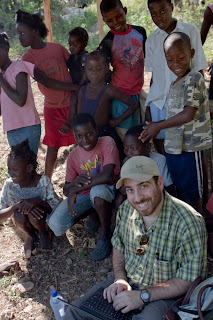 |
| Young Ag Experts |
By Nancy Wagner, CTI Director of Developing Programs
Managua, Nicaragua is a city of extremes. Extreme beauty, filth, luxury, poverty and humanity. A tent city filled with the poorest of the poor just down from a sparkling McDonald’s. Mercedes Benz’ and BMW’s at a stop light where a mother holding her beautiful toddler begs for a few coins. Men, women, teens, toddlers and the precious little ones, I try to see them all as we travel along the well maintained streets of Managua. No potholes (Minnesotans will appreciate this)!
Yesterday we traveled up into the San Ysidro community where we shared the road with horses, cattle, people, people and more people and some really deep, long potholes…the shocks on our Toyota truck got a great workout and performed like champs.
We were visiting the rural school run by the Fabretto Children’s Foundation and were absolutely blown away by the teens we met. The school is unlike any I’ve ever seen or heard of. These bright, poised, confident students stood in front of a group of soybean farmers from Illinois, Michigan and South Dakota along with folks from the National Soy Research Laboratory at the University of Illinois, World Soy Foundation folks and my Feed My Starving Children travel mates, Hilary Autry and Matt Muraski and me and reported on the agricultural projects that they were running. From raising bees (African bees are best suited to this area, the eloquent 17 year old told us) to raising chickens and hogs (this project was run by a five foot nothing 15 year old girl who wants to go to medical school and my money’s on her!) to growing avocados, plantains and other local produce, these kids are getting an education that no one could put a price tag on. These are kids from very poor rural families who are embracing their education, their projects and their futures. They are not only learning valuable skills, they are providing food for the school and selling the excess.
 |
| Leo, Future Agronomist |
At the end of our visit we asked the teens what they wanted to do after graduation. They all aspired to go on for more education but Leo got the biggest smiles and loudest applause from the farmers. What does he want to be? “An agronomist”. And no doubt that’s exactly what he will be. Leo already has his Bachelor’s degree in my book.




